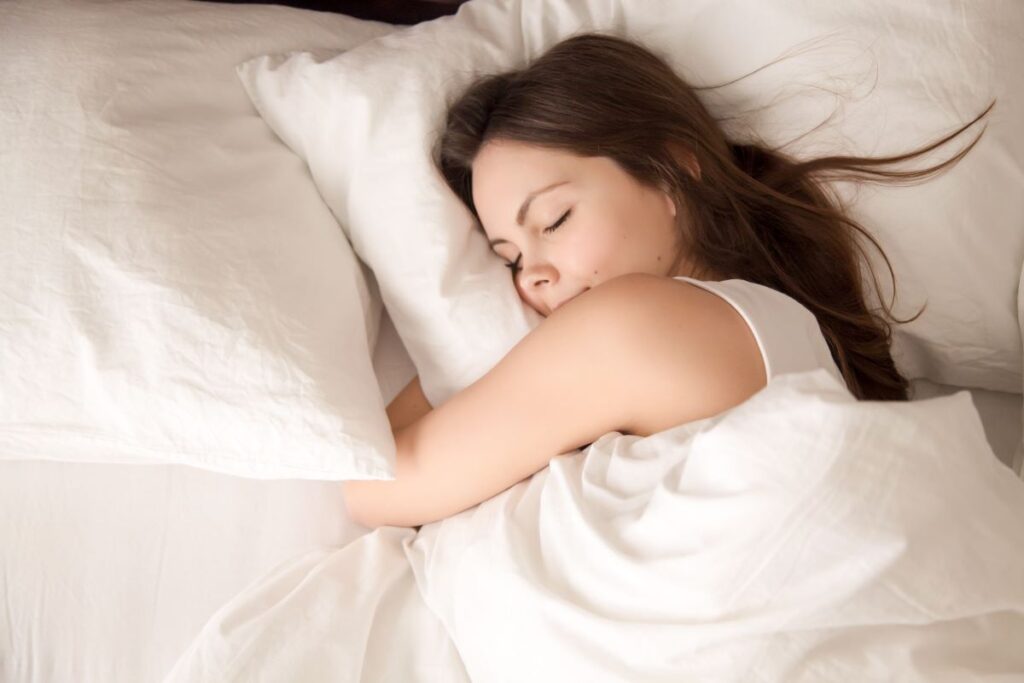Does CBD help you sleep?

What causes poor sleep?
Psychiatric disorders or problems are the most known cause of insomnia
Among these, we can cite:
Physical causes of insomnia
Several physical or medical conditions can cause insomnia.
Here are a few :
If your insomnia is caused by external factors or related conditions, CBD can help you by treating the causes of insomnia .
How does CBD work?
Cannabinoids and CBD interact with our body through the endocannabinoid system .
The endocannabinoid system plays a role in maintaining certain body functions, such as mood, appetite and sleep. It comprises a network of cannabinoid receptors in the brain and central nervous system, the two main of which are the CB1 and CB2 receptors.
When it comes to how they can affect sleep, some research indicates that the one that impacts sleep directly is CB1.
This receptor also plays a role in the regulation of many other important functions such as digestion, anxiety or mood to name a few.
CBD by acting on this receptor can therefore reduce anxiety and pain, both of which can interfere with restful sleep.
The CB2 receptor, for its part, impacts sleep indirectly. This receptor affects our immune system and therefore regulates functions such as inflammation, pleasure and pain.
Recent scientific evidence therefore attributes to CBD anxiolytic, neuroprotective, antioxidant and anti-inflammatory, antidepressant, antipsychotic and hypnotic properties.
CBD to help you sleep
As mentioned previously, CBD interacts with our endocannabinoid system. However, the latter is involved, among other things, in the management of sleep mechanisms . CBD also interacts with serotonin, which is one of the hormones essential to our rest and recovery cycles.
Effectiveness against sleep disorders
Thus, without replacing a possible drug treatment but rather by complementing it, CBD can help fight against certain sleep disorders such as:
More generally, CBD improves the quality of sleep , in particular by improving the transitions from paradoxical sleep to deep sleep, and by extending the duration of deep sleep phases, which is the most recuperative phase for our body.
Finally, CBD may have alleviating properties on certain symptoms that may be the cause of your sleep disorders such as anxiety, or counteract the effects linked to the consumption of exciting substances such as coffee.
What does the research tell us about CBD and sleep?
Studies abound regarding the soporific effect of cannabis . People suffering from a variety of conditions, including pain, anxiety, and post-traumatic stress disorder, report that CBD helps manage insomnia .
An example of a case study detailed in the literature involves a 10-year-old girl who experienced early childhood trauma. A trial of oral CBD oil (25 mg) reduced this little girl's anxiety and improved the quality and quantity of her sleep.
A larger retrospective case series, involving 72 adults who received CBD for anxiety and sleep disorders , assessed patient data monthly for 12 weeks. Anxiety as assessed by the Hamilton Anxiety Scale decreased within the first month for 79% and remained low throughout the study. The Pittsburgh Sleep Quality Index score was also improved during the first month in 67% of the sample .
Pain, which can also cause sleep disturbances, can also be relieved by CBD. A 2018 meta-analysis noted that CBD relieved pain and therefore improved sleep.
Conclusion
These days, more and more people are turning to more natural remedies as an alternative to prescription sleeping pills. Hypnotics can indeed create dependence and increase the risk of mortality in the long term.
Through the CB1 and CB2 cannabinoid receptors, CBD can have a direct positive impact on sleep , but also indirectly by limiting the factors that prevent you from sleeping.
However, further research is needed to advance the use of CBD and improve our knowledge.
